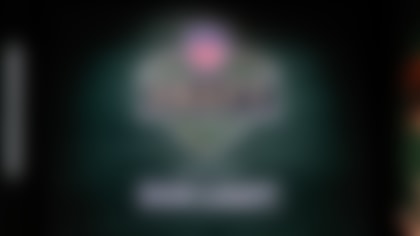Note: The following story can be found in the Super Bowl XLIII official game program.
He doesn't remember exactly when it happened, nor exactly where, but neither of those pinholes in his capacious memory are in any way related to the fact that we're talking about the oldest coach in the National Football League.
For Dick LeBeau, now completing his 50th NFL season, there's been much football in all of its ever more fluid forms -- so many games, so many practices, so many meetings, so many eye-watering hours of film/tape/disc study, and so many strategy-poisoned sleep cycles -- that a couple of random when-and-where factoids don't really amount to much.
So he puts it at 10 years ago. OK, maybe 15.
It was at a place where the NFL had convened its coordinators, the chiefs of staff for NFL coaches. It was a kind of career development program, a life-coaching session, and LeBeau, in the midst of his first go-around as Pittsburgh Steelers defensive coordinator, engaged it with his typical respectful studiousness.
"The speaker finished by asking us to think about someone who had helped us along the way in our careers, and to make a point of finding that person and thanking him," LeBeau recalls. "There were about 40 people in the room. I started to get up out of my chair -- trying to think of the people I had to thank -- and [before I knew it] half the room had come up to me."
That he is so widely regarded for his helpfulness on top of his renowned defensive expertise still surprises LeBeau and, it seems, only LeBeau. When the Steelers hosted the Detroit Lions on New Year's Day three years ago, all of his defensive players showed up that morning wearing $300 vintage Lions jerseys with "LeBeau" and the old cornerback's No. 44 on the back. The coach was dumbfounded.
"I remember feeling my jaw just dropping lower and lower."
He wept.
A self-described incurable romantic who recites "The Night Before Christmas" from memory to his team every holiday season and who considers the greatest football legends of all time the London (Ohio) Red Raiders of 1951 -- essentially the buddies of his older brother Bob, their quarterback -- LeBeau entered pro football in 1959 as a fifth-round draft pick out of Ohio State. If that seems deep into history, that's merely perfect, for LeBeau himself is deep into history. He could tell you that 1959 was when Castro came to power in Cuba, when hula hoops somehow made sense, when Buddy Holly's plane went down in an Iowa cornfield and when the territories of Alaska and Hawaii formally became states.
"My grandmother, who I can remember vividly, passed in 1956 at the age of 77," LeBeau says. "When she was born, flight hadn't been discovered and there were no automobiles. Just two generations later, man had been everywhere, including the moon and back. So no matter what you're doing, things evolve and progress, knowledge is enhanced and that's always going to be true no matter what you're involved in."
The pro game's breakneck evolution, from the moment LeBeau started intercepting passes in a 14-year playing career with the Detroit Lions (he picked off 62 passes before retiring in 1972, at the time the third most in NFL history) through this, his 36th year in coaching, has become an endless sweep of ever-widening cycles. His résumé includes stints with the Eagles, Packers, Bills, twice with the Bengals (where he was also the head coach) and the Steelers. But rather than wear on the old coach, this deepening experience serves only to invigorate LeBeau, who looks some 20 years younger than his 71.
"When the season is over now, you almost instantly begin an evaluation process," he says. "You then go into a renovative stage where you look around the league and see what everybody else is doing.
"Next, you move on to a kind of creative phase where you're trying a few new things," LeBeau continues. "You get your players in and expose them to some of these new thoughts, so it's not something where you have to wait six months to see if the sales plan is going to work. You can tell if it is selling in two or three days.
"There's nothing like having your players around you. That's when I find out if what I'm assigning them to do is really a viable thing. I think part of coaching longevity is being able to say, 'This [idea] isn't worth a damn.' I mean, if [All-Pro linebacker] James Farrior can't do it, I don't think it's gonna get done."
The entire process still excites and challenges him, but at the same time LeBeau is acutely aware of the immense personal tradeoff football requires. The coach remains fascinated by film (he was Michael Caine's double in 1970's "Too Late The Hero"), music (he's an accomplished guitarist), golf (he's made two holes-in-one) and, as ever, by people, places and history. That kind of broad intellect is not always totally comfortable in this game.
Former Steelers coach Chuck Noll, whose four Super Bowl wins remain more than any head coach, held a similar mental palette, crowded with wine, art, music and politics ... and was ultimately sacrificed to the more single-minded realities of the profession.
"[Football] keeps you so focused that there's really not a lot of time for reflection," says LeBeau, almost reflectively. "I guess I was pretty fortunate to have played for 14 years because, in those days, I had more free time.
"In that period of my life, it was the 100th anniversary of the Civil War. I read every Civil War book I could get my hands on, and there was quite a lot of news coverage surrounding the anniversary, too. I visited all the battlefields and the national parks that do such a wonderful job preserving that history."
But there are things that neither the demands of his profession nor the speed of the culture at large can change, and some of them exist among the defensive characters on the 360 x 160-foot stage he continues to direct like few before or since.
"Believe it or not, the foundations of defense and, in particular, secondary play haven't changed that much since when I was a player," LeBeau insists. "The basic positions that we kept in the secondary and the basic philosophy of the defense overall -- find the ball and get the guy on the ground -- those are the things that keep me viable."
Were there even a whiff of suspicion that LeBeau's designs or his resulting tactical systems were no longer in the vanguard, it was obliterated in January 2007, when Mike Tomlin became the Steelers head coach. Tomlin, who had been the Vikings' defensive coordinator and before that the defensive backs coach for the Buccaneers, retained not only LeBeau, but most of the team's defensive staff.
"That was really unique," says Kevin Colbert, Pittsburgh's director of football operations since 2000. "For a new, defensive-minded coach to keep him and his staff, it just shows how much respect [Dick] has around the league. I'm not an X's and O's guy, but I know players enjoy not only playing for him, but playing in his schemes because they're so innovative and interesting."
Or, as Steelers linebacker Larry Foote once put it, "I'm glad we have Coach LeBeau because it's a chess game out there, and he's always ahead of the 8-ball."
While that's a compliment in at least three disciplines, it's curious that LeBeau's skill set didn't coalesce in his lone head coaching opportunity, that coming with the Cincinnati Bengals. He went 12-33 after taking over for Bruce Coslett a month into the 2000 season. Though, in his defense, the Bengals of those days were mired in such a down spell that not even LeBeau's coaching idols -- Woody Hayes, Vince Lombardi, Paul Brown, and Tom Landry -- could have brainstormed them to a .500 record.
Steve Sabol's take
Is David Tyree's catch the greatest play in Super Bowl history? Steve Sabol sure thinks so, even among the many great moments in the game's illustrious history. **Read More ...**
After spending the 2003 season on the Buffalo Bills staff, he returned to Pittsburgh, where he helped the Steelers to a fifth Super Bowl victory and finally got a ring for himself. (LeBeau had been an assistant with the Bengals teams that lost Super Bowls XVI and XXIII and the Steelers squad that was beaten in Super Bowl XXX.) When head coach Bill Cowher retired somewhat unexpectedly a year later, his successor -- Tomlin -- wisely kept the man he's come to refer to as his security blanket instead of rebuilding the Steelers defense from brick one.
"It was a great compliment, an honor really, because I really didn't know Mike," LeBeau says. "I was pleased that he even considered me because as you go through the coaching ranks, you always think about formulating a staff of guys who you know and who you know pretty well."
Presumably there are a few cycles left in this brilliant career, and LeBeau remains more than ready.
"People are going to take all your defenses from last year and put them on one reel, video, or disc," he says. "I like to have things for them that aren't on any tape."
There is no secret, therefore, to playing against Dick LeBeau, whose game is often beyond the parameters of memory. How can you, and why should you, remember his defenses when you might be going up against something he hasn't even imagined yet?
Gene Collier has covered the NFL in Pittsburgh and Philadelphia for more than 30 years. He is the co-author, with Rob Zellers, of the one-man play starring Tom Atkins based on the life of Steelers founder Arthur J. Rooney.



